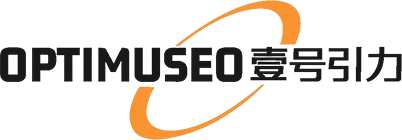Web page indexing is the process by which search engines like Google, Bing, and Yahoo organize and store information from web pages in their databases. This allows users to easily find relevant information when they perform a search query. Without web page indexing, search engines would not be able to provide accurate and timely results to users, making it difficult for people to find the information they need online.
Web page indexing involves the use of web crawlers, also known as spiders or bots, which are automated programs that browse the internet and collect information from web pages. This information is then stored in the search engine's index, which is a massive database of web page content. When a user performs a search query, the search engine uses its index to quickly retrieve relevant web pages and display them in the search results.
The Importance of Web Page Indexing for Search Engines
Web page indexing is crucial for search engines to provide accurate and relevant search results to users. Without proper indexing, search engines would not be able to efficiently retrieve and display web pages that match a user's search query. This would result in a poor user experience and make it difficult for people to find the information they are looking for online.
In addition, web page indexing allows search engines to constantly update their index with new and updated content from web pages. This ensures that users are presented with the most current and relevant information when they perform a search query. Without proper indexing, search engines would struggle to keep their index up-to-date, leading to outdated and irrelevant search results.
The Structure and Organization of Web Page Indexing
Web page indexing involves the use of complex algorithms and data structures to organize and store information from web pages. When a web crawler visits a web page, it collects various types of information, including text content, images, links, and metadata. This information is then processed and stored in the search engine's index in a structured and organized manner.
The search engine's index is typically organized based on keywords and phrases found within the content of web pages. This allows the search engine to quickly retrieve relevant web pages when a user performs a search query. In addition, the index may also store other types of information, such as the frequency of updates to a web page, the quality of the content, and the relevance of the web page to specific search queries.
How Search Engines Crawl and Index Web Pages
Search engines use web crawlers to browse the internet and collect information from web pages. These web crawlers follow links from one web page to another, collecting information along the way. When a web crawler visits a web page, it collects various types of information, including text content, images, links, and metadata. This information is then processed and stored in the search engine's index.
Once a web page has been indexed, it can be retrieved by the search engine when a user performs a search query. The search engine uses its index to quickly retrieve relevant web pages and display them in the search results. This process allows users to easily find the information they are looking for online.
Factors Affecting Web Page Indexing
There are several factors that can affect how search engines crawl and index web pages. One important factor is the quality of the content on a web page. Search engines prioritize high-quality, relevant content when indexing web pages. This means that web pages with well-written, informative content are more likely to be indexed and displayed in search results.
Another factor that can affect web page indexing is the structure of a website. Websites with clear navigation and internal linking structures are easier for web crawlers to navigate and index. In addition, websites that load quickly and are mobile-friendly are more likely to be indexed by search engines.
Best Practices for Optimizing Web Page Indexing
There are several best practices that website owners can follow to optimize their web page indexing. One important practice is to create high-quality, relevant content that is optimized for specific keywords and phrases. This can help improve a web page's visibility in search results and increase its chances of being indexed by search engines.
In addition, website owners should ensure that their website has a clear navigation and internal linking structure. This can help web crawlers easily navigate and index all of the pages on a website. Website owners should also focus on creating a fast-loading, mobile-friendly website, as this can improve a website's chances of being indexed by search engines.
The Future of Web Page Indexing and Search Engine Optimization
The future of web page indexing and search engine optimization is likely to involve advancements in artificial intelligence and machine learning. These technologies can help search engines better understand and interpret the content of web pages, leading to more accurate and relevant search results for users.
In addition, voice search is expected to play a larger role in the future of web page indexing and search engine optimization. As more people use voice-activated devices like smart speakers and virtual assistants to perform searches, website owners will need to optimize their content for voice search queries in order to improve their visibility in search results.
Overall, the future of web page indexing and search engine optimization is likely to involve advancements in technology that improve the accuracy and relevance of search results for users. Website owners will need to stay informed about these advancements in order to effectively optimize their web pages for search engines.



